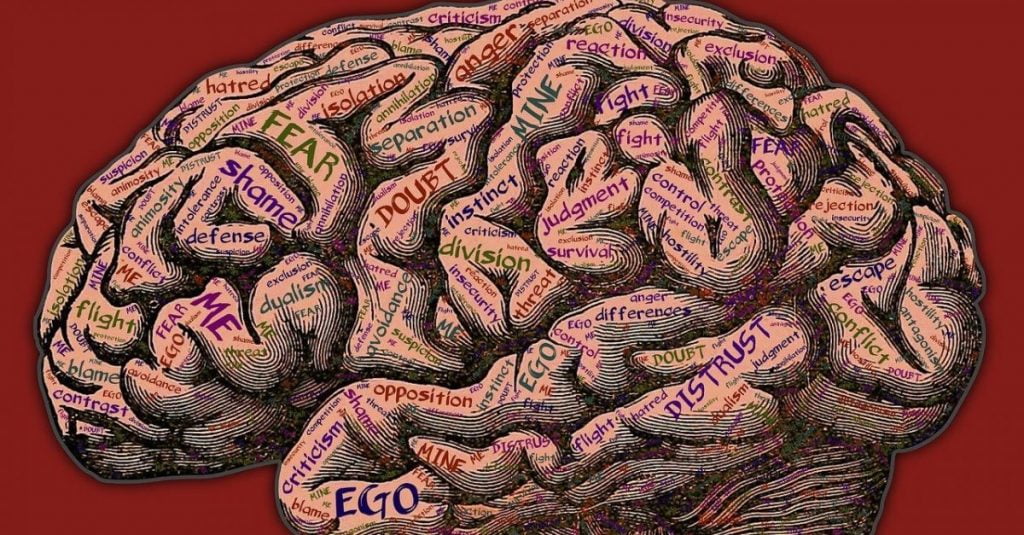Do you constantly feel like you’re not good enough? If so, you’re not alone. Most of us believe that boosting our self-esteem is important when it comes to improving our well-being. We spend time and effort analysing our flaws and trying to fix them, all in the hope that we’ll start to feel better about ourselves. But is this really the best approach?
Research shows that it might not be. In fact, focusing on self-esteem may actually do you more harm than good. So, if you’re looking to improve your well-being, read on!
What is self-esteem, and where does it come from?
Self-esteem is the worth and rating you have about yourself. For example, we would probably say you have low self-esteem if you have an unfavourable attitude towards yourself.
People with low self-esteem often struggle with negative thinking patterns, feel unlovable and unworthy, and set high standards that are difficult to meet. This can lead to depression, anxiety and feeling inadequate. In some cases, it can also lead to eating disorders, as people try to control their weight to conform to unrealistic beauty standards.
On the other hand, people with high self-esteem often struggle to take criticism. They may think they are perfect and don’t need to improve. They see feedback as a personal attack and a threat to their view of themselves.
We have all created standards to judge our self-esteem. These standards can be broadly divided into two categories: internal and external. Internal standards are those that exist within our own minds, while external standards are those that exist outside of ourselves.
Our internal standards are often influenced by the people and institutions around us, such as our family, friends, school, and the media. These sources can teach us what it means to be a “worthy” human being, and might include factors such as our intelligence, beauty, or success.
In contrast, external standards come from the people and things around us that we use as a frame of reference. For example, we might compare ourselves to a colleague doing well in their career and use this person as an example of what we should strive to be.
The impact of these standards
Unfortunately, these standards often leave us feeling unworthy. We see glimpses of what we should be accomplishing and feel discouraged because we just don’t measure up. However, this comparison is distorted.
When we see ourselves as worthless, we will find evidence that supports our view. On the other hand, someone with high self-esteem will be able to live up to the standards they set for themselves because they believe in their own worth.
Therefore, we must be careful about the standards we set for ourselves and the comparisons we make for our self-esteem. Are they based on a healthy view of our own worth? Otherwise, we will only end up feeling discouraged and depressed.
We may think self-esteem is important for success. After all, if you don’t believe in yourself, it won’t be easy to accomplish anything. However, If you constantly measure your worth against an impossible standard, you’ll only set yourself up for disappointment.
The impact of believing self-esteem is important
Constantly measuring yourself against these self-imposed standards for self-esteem will negatively affect your well-being.
The basis of self-esteem is- I will be ok when:
- I do well on a test
- I perform better than my colleagues
- I have a faster car
- Fill in the blank
Therefore to have high self-esteem, one must first set standards for themselves and then meet those standards. We only accept ourselves after reaching a certain goal or standard.
However, the truth is that these standards are often arbitrary and self-imposed. They are not universal, and no two people will hold the same internal and external standards.
As a result, chasing conditional self-acceptance to build your self-esteem can make you more miserable. Not only can it lead to feelings of failure and inadequacy if you don’t meet your standards, but it can also produce psychological problems such as anxiety and depression.
In my early twenties, I worked hard to improve my self-esteem. I would constantly compare myself to an unachievable standard. And whenever I fell short, my anxiety would rise, and I would punish myself. It wasn’t until later that I realised that this was an impossible goal.
I was setting myself up for disappointment and failure. When I started accepting myself for who I was, my well-being improved. And now, instead of chasing an unattainable ideal, I focus on being the best version of myself. This has made all the difference in my life.
So, It is important to remember that your achievements or failures do not define you. You are worthy of love and respect regardless of what you do or don’t do. So instead of chasing conditional self-acceptance, strive for unconditional self-acceptance instead. To achieve this, you must first overcome your ego and story.
The ego, your story and self-esteem
Your self-esteem arises from the story you have created about yourself. It is the creation of the ego and remains rigid and doesn’t change much from year to year.
Several factors help to create your story:
- Firstly, all the events that have impacted you in some way – positive or negative – have helped shape your story. For example, a messy divorce, trouble at school, bullying etc
- The people in your life also give you feedback about who they think you are. This can be through compliments or criticisms, but either way, they help to develop your personal story.
- Our possessions, appearance, performance, job and beliefs form part of our story. For example, are you an entrepreneur? That is your story.
- Finally, your story is also an outcrop of the comparisons you make between yourself and others. We constantly compare ourselves to those around us, and this shapes how we see ourselves in the world.
However, this story is just a perception of yourself and can never be your entire personality.
If you think you are friendly, that is the story you created about yourself. While this story is important, it is not the whole picture. You are a complex being and ever-changing. However, the story you’ve created is rigid.
The use of language to describe yourself can create a false dichotomy. If you say you’re an introvert, does that mean you can never be an extrovert? How about at home or a place you feel safe? Is the option between introvert and extrovert only? Could someone be between the two terms? Using language to describe yourself will only further create a false perception of yourself.
The impact of the story
By using words to describe yourself, you are limiting yourself to those labels. You are not allowing yourself to grow and change.
Furthermore, it’s human nature to look for evidence that confirms our beliefs while at the same time ignoring evidence that contradicts them. This is called a confirmation bias and can greatly impact how we see ourselves. For example, if you believe you are not good at public speaking, you’ll only remember when you’ve been nervous or made a mistake, and you’ll ignore all the times when you spoke confidently and without incident.
For some people, their story is one of success and happiness. They see themselves as strong and capable, worthy of love and respect. Others have a more negative view of themselves, believing they are unworthy or unworthy of happiness. Regardless of the specific content of our stories, they all serve the same purpose: to give us a sense of identity.
However, our stories are mere constructs that we create to make sense of our lives. Our stories do not define us; we are so much more. But, we become trapped by our past and defined by our mistakes. Then, we define ourselves by our stories.
However, it’s important to remember that it is not the story that is harmful but the identification with it. When we identify with our story, we believe that this is who we are and we limit our potential.
Ultimately, we become attached to it and worry about what others think of it and, therefore us. And when you believe that self-esteem is important, you have to judge yourself and identify with your story even more.
Instead, it would help if you strived to build unconditional self-acceptance to improve your well-being.
The importance of self-acceptance
A metaphor I sometimes use with clients is to compare their story to a boat and then remind them that they are the captain. It is a distinction that helps separate them from believing they are the story they have created.
You are the person that experiences your life. It emerges naturally in every moment and is not a mental construct of who you think you are. It is the direct experience of this present moment.
Whereas the story of yourself is rigid and fixed, the experiencing self changes and is fluid. You do not have to live up to any standard at any particular moment because you are simply the inner witness to your experience.
You are not your actions day to day; you are the captain taking the actions. You can create more well-being by focusing on the importance of self-acceptance and disidentifying with your story.
Ways to improve self-acceptance
The key to self-acceptance is to connect with your experiencing self rather than your story. Your story is the narrative you have created about yourself and comes from self-imposed standards that are unattainable.
There are a few things you can do to strengthen self-acceptance:
Firstly, use observational language instead of words that identify you with your story. This type of language will distance you from the story you have created.
- You are not a police officer; You work as a police officer.
- You are not a loser; you are a person having thoughts of being a loser.
- You are not clumsy; you are a person who sometimes behaves clumsily.
Secondly, practice observing your thoughts. This doesn’t mean judging or getting caught up in them, but simply noticing them as they arise. It can be part of mindfulness practice, but it’s also something you can carry into your everyday life.
When a thought arises, view it as a neutral observer instead of identifying with it. This gets easier with practice, and you’ll find that your thoughts have less power over you as you get better at it. Remember, those thoughts are part of your story, not the whole of who you are. You are the captain of your ship, and you get to choose which thoughts to listen to and which to ignore.
Thirdly, avoid behaviour that arises from your story. When your story is challenged, don’t feel the need to defend it or make excuses. Also, try not to compare yourself to others. Comparison is the thief of joy. Finally, avoid the need to name-drop, show off or brag. These behaviours will undermine your self-acceptance and make you think your story and self-esteem are important.
Final thoughts on self-esteem
Self-acceptance is a much more important goal than self-esteem. When we can accept ourselves, we can improve our well-being and open up to limitless possibilities. The tips in this article will hopefully help you build self-acceptance and live a happier life.
The journey to self-acceptance is not easy, but it is worth taking. Obviously, there is so much more to share that is impossible in a single blog post. Book a coaching session if you want to explore how to find self-acceptance. During our session, we will discuss your unique situation and create a customised plan to help you find it. With the proper support, you can begin to heal the wounds of the past and move forward into a brighter future.





